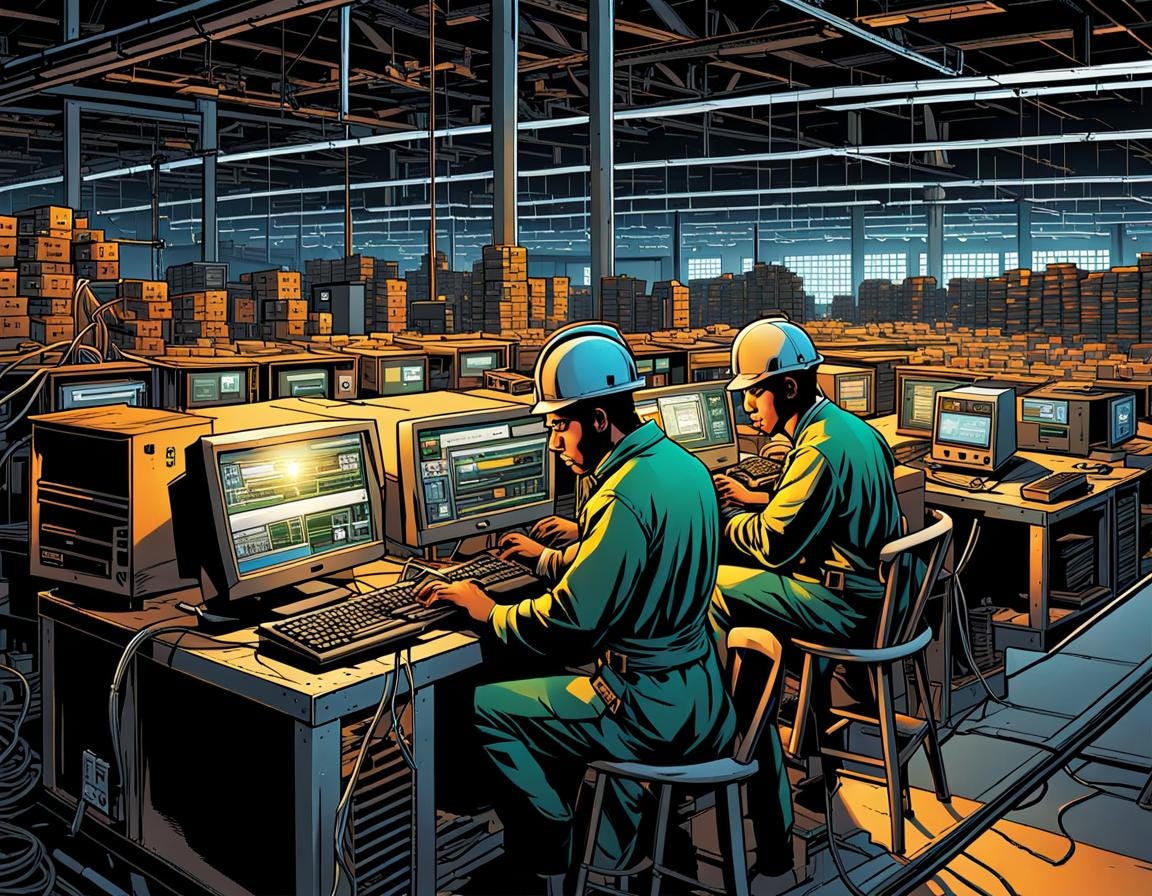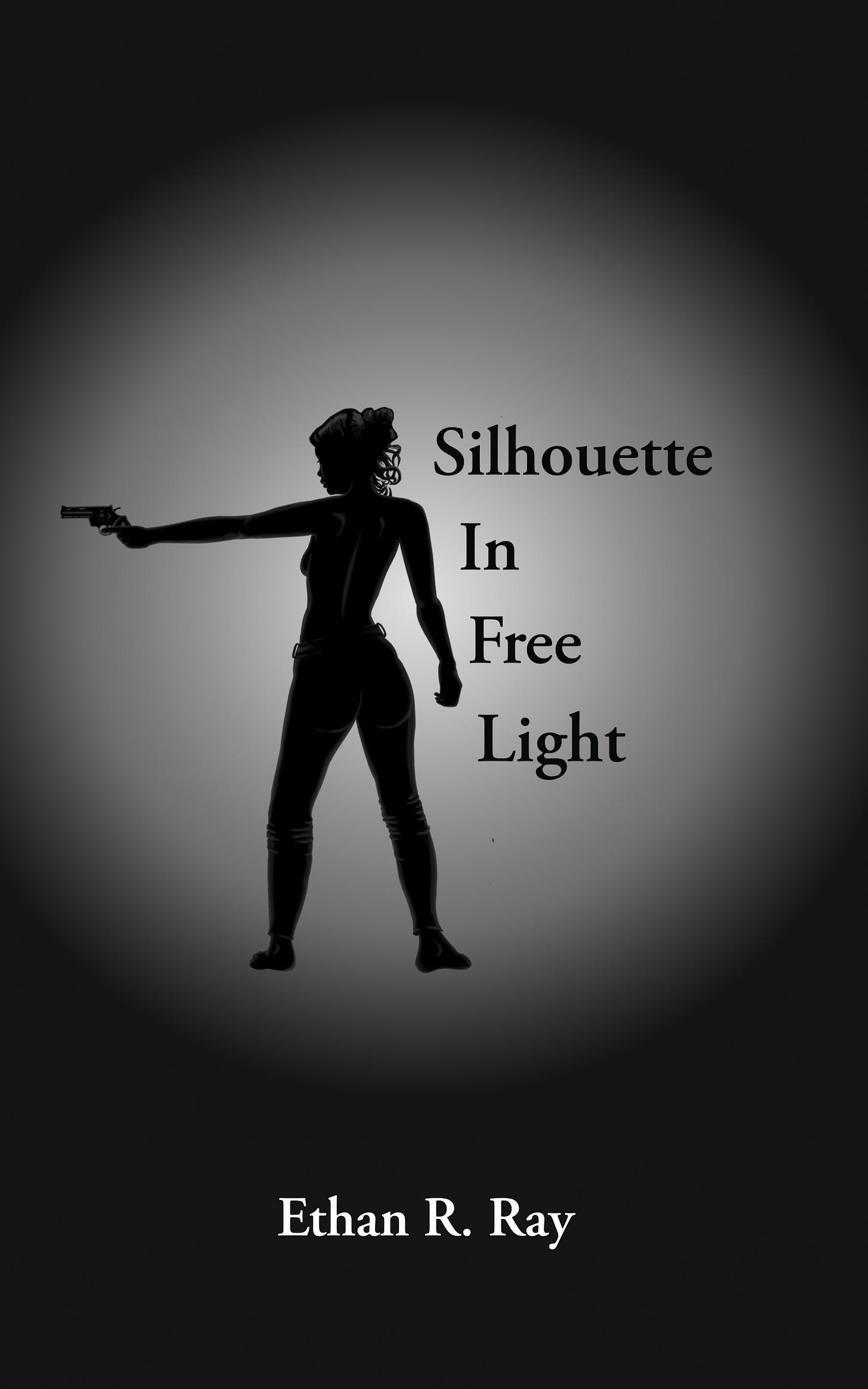Happy (Western) holidays! First to the followers of Radio Free Pizza, of course, and next to humanity in general. For our last dispatch of 2023, wedged between two high holy days—just before Christmas where it lands in the Gregorian calendar, and just after the modern Festivus with its instantly beloved traditions—it seems fitting to address now any developments to those ongoing stories we’ve covered this year, along with a smattering on some of those important stories that our coverage missed.

Hunter in the Crosshairs
Our slice from July covered (some of) Hunter Biden’s legal quagmire. We focused first on his plea bargain for tax and gun crimes, which many considered to be a sweetheart deal and which we took as evidence that the wealthy represent a privileged class in American law. But in fact that plea deal collapsed the same month. After the presiding judge rejected the deal, prosecutor David C. Weiss requested and received an appointment to special council in August, driven (some argue) by the need to produce a report addressing criticisms of his conduct as a prosecutor—such as those of Biden’s then-lawyer, who accused Weiss of reneging on his commitments. Whatever his motives, Weiss’s appointment as special counsel seems to have been opportune, since he brought nine more charges on tax crimes against Biden earlier this month.
Our second focus, however, has seen more dramatic developments. The House Oversight and Accountability Committee’s ongoing investigation into Biden’s business dealings—into, more specifically, whether the family’s heir-apparent peddled his father’s political influence, received bribes on his father’s behalf, and/or allowed his father to conduct business in his name—led the committee to subpoena Hunter Biden for a private deposition, which he defied on 13 December. On the same day, a full vote of the U.S. House of Representatives authorized a formal impeachment inquiry against President Biden.

Two IRS whistleblowers have already confirmed that evidence exists the President committed a crime (I mean, besides the usual presidential war crimes) and pointed the committee to an email in which Hunter Biden describes a deal between a Chinese energy firm and his family for $30 million over three years just for introductions, a WhatsApp message naming his father as present while demanding payment from the firm—in addition to the well-known “10[%] held by H for the big guy” (and less well-known additional 10% for Hunter’s uncle) suggested in an email to Hunter Biden from a partner in the joint venture with the very same energy firm.
$30 million certainly dwarfs the ~$2.5 million mentioned in our July dispatch. I suspect too, of course, that further sums will become public, in addition to any that our passing coverage would have missed. Finally, though Radio Free Pizza has (to my recollection) only so far mentioned the U.S. imperial project in Ukraine in the context of the vassal’s neo-Nazis, developments in the Russia-Ukraine conflict might give us another reason to revisit the investigation of the Biden family: after all, while speaking in 2018 at the Council on Foreign Relations, President Biden described telling Ukrainian government officials that the Obama Administration would withhold a billion-dollar loan guarantee unless Ukraine dismissed the state prosecutor investigating the natural gas firm Burisma Holdings, where Hunter Biden sat on the executive board. So, we might just return to this story in the coming year.
Hat-in-Hand (Panama Goes to Court)
One of our November slices detailed the protests in Panama contesting suspected corruption in the renegotiated contract for the copper mine representing 1% of the world’s output. On that contract we can report now that, two days after our dispatch’s release, the supreme court of Panama ruled that contract unconstitutional. In response to the Cobre Panama mine’s closure, First Quantum Minerals filed a case in the International Court of Arbitration of the International Chamber of Commerce—not, as I presumed earlier, in the International Center for Settlement of Investment Disputes of the World Bank—though CEO Tristan Pascall would prefer to avoid it.

Instead, First Quantum Minerals plans to conduct a public relations campaign in 2024 to persuade the public ahead of national elections to try salvaging the company’s most profitable mine. Though he maintained that the company’s commitment to Panama remains “absolute,” the CEO dodged an interview question (at ~1:01) about whether his company considered sweetening the deal for the Republic of Panama, saying instead that they were waiting on the government’s “framework of conversation” to determine a long-term trajectory for such discussions and were currently focusing on environmental clean-up and “employee issues”—maybe related to the 2500 workers at First Quantum’s Panamanian subsidiary who took a voluntary retirement scheme.
With the mine’s closure, the policy director of the finance ministry predicts Panama’s 2024 GDP growth will fall from 5% toward 3%. That might seem like an exaggeration at first, since the Cobre Panama mine only accounts for 5% of Panamanian GDP, so how could it account for 2/5ths of the country’s growth? But Moody’s already cut the country’s international credit rating almost a month before the court’s decision, and international investors worry the country is becoming less friendly to business. (All that after the country’s bonds fell toward a 14-year low with the reduction of its canal traffic due to drought conditions.) So, it’s not difficult to imagine the knock-on effects, which might prove more persuasive to the average Panamanian than First Quantum’s marketing campaign.
Could reconciliation be on the table? Maybe in 2024 we’ll find out if it’s built into the conversation’s framework.
The Show Goes On
The intermission in the entertainment industry came to a close earlier this month, when members of the Screen Actors Guild-American Federation of Television and Radio Artists (SAG-AFTRA) concluded a monthlong vote approving a contract to end their strike. Of course, union members had been free to work since 8 November, when their guild’s board approved the deal negotiated with the Alliance of Motion Picture and Television Producers (AMPTP) and sent it to a union-wide vote.
As longtime readers will recall, the 2023 Hollywood strikes centered around how the entertainment industry will leverage artificial intelligence. To its executive negotiator’s credit, the new SAG-AFTRA contract makes substantial gains in this arena, securing the contractual obligation for studios to provide performers with informed consent for the use of their digital likeness, to pay them at the same rate as for performance, to only possess the license to use that likeness on a per-project basis, and to secure the informed consent of any performers whose attributes became the components for a digital character design.
Since the Writers Guild of America (WGA) reached an agreement with the AMPTP on 24 September that its members ratified on 9 October, the SAG-AFTRA resolution brings the 2023 Hollywood strikes to a close. Similar to their performing comrades in SAG-AFTRA, the scriveners in the WGA took care to secure its members’ livelihoods against technological change, guaranteeing writers the right to use AI-generated content with a studio’s consent but preventing studios from demanding writers use AI tools to generate scripts of story treatment, and prohibiting studios from using AI “‘to write or rewrite literary material’ that might have been considered as the source material for a script, ‘meaning that AI-generated material can’t be used to undermine a writer’s credit or separated rights.’”
Of course, no gains have been made for either union (as far as I can tell) in securing its members’ (and their audiences’) economic interest in—as well as their creative control over—the intellectual properties they collaborate to release: not even after our helpful offer of a DAO model like the one we offered in our September coverage. But, for now at least, I’m sure everyone involved is glad just to get back to work: restructuring the industry can wait until next year.
Life Imitates Tragicomedy
Our slice from August included a few AI-generated images produced using the prompt, “Third-world workers chained to the assembly line on a factory floor manufacturing identities for first-world consumers to purchase and discard with abandon.”

Those images illustrated an argument that, due to a policy of “cultural austerity consist[ing] of social engineering to promote choices and behaviors among consumers that reinforce the current socioeconomic relations,” the concurrent rises of both identity politics and social media have meant that “personal identity has become a product selected from those available to consumers on the cultural marketplace.”
Amusingly, an offhand reference to Che Guevara T-shirts would find an echo in a later dispatch on the aforementioned cultural marketplace in a quote from the work of Peter Coffin. The same dispatch included images produced with the prompt, “Social engineers oversee the assembly line of a factory manufacturing identities for first-world consumers to purchase and discard with abandon.”
Of course, those image-generating prompts were just hyperbole. But then, on the same day I released my dispatch on the cultural marketplace, the most contemporary example from Corbett’s “Everyday Conspiracies” would introduce me to the concept of an “influencer factory.”
First, Corbett furnishes examples of how social-media influencers manufacture false and misleading content—such as by renting private planes not for travel but for staging their photoshoots, by Photoshopping those supposed vacations’ photo records, and by photographing themselves in retail furniture stores and presenting it as if it’s their home—and of how those influencers’ techniques are taught in college courses like “Self-Made Media Content Creation and Operation” at the Communication University of Zhejiang.
(All of that, just because people can monetize the viewers to whom the algorithm presents their social media posts, and because that apparently seems to them like a good idea. Incredible.)
But sadly, the dedicated graduates of such programs might just be bound for the “‘influencer factories’ where employees of some vast fake influencer empire toil in sweatshop-like conditions.” As Corbett quotes from an Off-Guardian column in October:
It’s what they call an “influencer factory”, a bunch of young women set up in a warehouse to post entirely fake social media content to entirely fake social media accounts. All designed to sell makeup, clothes or food. Or, worse, to drip feed hope to poor people who aspire to a more affluent lifestyle.
(The graduates from Zhejiang probably won’t land here, though: anyway, the video seems to come from Indonesia.)
Disappointing as it already is that society should organize itself in such a way that an industry develops to support these influencer factories, it gets worse: the same column goes on to ask us to “imagine what kind of factories exist to sell agendas, or ideas, to the world. And imagine how many of the people working in them you’ve wasted your time arguing with [online]”—calling into question the authenticity of the online communities (among others) trafficking in the discourse of the professional-managerial and traditionalist-reactionary dialects.
But at least we can identify some of the on-camera workers of those agenda-distributing influencer factories: they’re the broadcast anchors of the mainstream corporate media. However, as the 2024 U.S. presidential election approaches, that thought from The Off-Guardian suggests it would behoove us to consider whether some online influencers or some in indie media might fit the same bill.
Shooting BRICS
Unexpectedly—and not just because I wasn’t paying attention—Javier Milei (speaker at the WEF’s 2014 regional conference in Panama City) became President of Argentina. Among the numerous policy changes expected or announced for his administration came word from the incoming foreign minister that Argentina will decline to join BRICS’s economic bloc in 2024.

As an economist I (luckily, I think) have no credentials. Still, this seems like a bad move for Argentina. Our October slice about BRICS’s expansion emphasized the share of world oil production that countries within the bloc will control—less than a third, despite RFK Jr.’s false claims otherwise—and the close relationship between oil consumption and economic growth, as well what Saudi Arabia’s admission means for the petrodollar system and, therefore, for the U.S. dollar’s longtime status as the global reserve currency.
Why would you want to surrender membership among such economically powerful trading partners? I don’t know! Maybe we’ll find out in 2024.
Nakba for Natural Gas
That same slice from October didn’t just neglect Argentina: in that dispatch, we here at Radio Free Pizza also neglected to address how global energy markets responded to the Israeli extermination campaign in Gaza following Hamas’ attack, conducted just eight days before that dispatch’s release.
Having been raised in the West, I naturally neglected Palestine. Of course, the ongoing massacre remains unspeakably horrible, with 1-in-200 Palestinians in Gaza dead just one month into the siege. Two and a half months into it now, the Israeli campaign has killed more than 24,500 Palestinian civilians, including more than 6,000 children—and I’m guessing these are low figures.
So, inquiring minds want to know: what’s the cause of all this?

I’m sure the answer’s out there, and that it’s certainly too long for us to cover today. In reference to Radio Free Pizza’s 2023 catalog, what I’m really talking about might stand as only one of that answer’s later footnotes. But still, I think the Gaza Marine natural gas field could factor into it: a trillion cubic feet of natural gas discovered in 1999 about twenty miles off the Palestinian coast, the license to develop which (negotiated with the Palestinian Authority) expires next year.
The Gaza Marine field was estimated in 2018 to contain $3–4 billion in natural gas. Of course, the Israeli naval blockage launched after the 2007 election of Hamas has thus far prevented any company from developing the field, which Israel claimed sovereignty over (read: decided they wanted) in 2008. According to such claims, Israel negotiates contracts to explore and develop natural gas fields in its self-declared territories, as it did just three weeks after Hamas’ October attack.
Altogether, these little-publicized details about Palestine’s natural resources put a different spin on the decades-long Israeli occupation. In keeping with the 2003 invasion of Iraq—and with the the U.S.-executed bombing of the Nord Stream pipeline—we can see here that controlling energy markets remains one of empire’s trademark strategies. Here, Israel seems well-positioned to execute it, and may have some experience doing so, depending on how one interprets what Biden meant when he said in 1986, “Were there not an Israel, the United States of America would have to invent an Israel to protect her interests in the region.” Therefore, as the expanding BRICS promotes cooperation in the Middle East, I imagine that the capital order will undoubtedly do its best to profit from the conflict that Israel promotes in the region.
Silhouette in Free Light
Speaking of subjects I failed to mention before, Diaphora Co. proudly released Silhouette in Free Light by Ethan R. Ray this past Halloween.
“This is a book about what not to do,” the back cover tells us, and boy, is it ever!
Centered around Clyde and Cassandra, two individuals entangled in the complexities of love, identity, and haunted pasts, the story paints an intimate portrayal of their unconventional life in New Hampshire. Their relationship, marked by vulnerability and raw emotion, is anything but conventional. Ray’s evocative prose delves into the intricacies of human connections, portraying Clyde and Cassandra as deeply flawed yet compelling characters.
As the couple navigates the challenges of their relationship, Ray skillfully combines moments of tenderness and tension with unexpected turns and suspenseful elements introducing further complications.
In Silhouette in Free Light, Ray’s introspective and observant writing invites readers to reflect on the nature of love and the delicate balance between freedom and connection. The story, dealing with the extraordinary moments in the ordinary lives of its central characters, unfolds as a captivating exploration of the complexities of human relationships.
Distant Star, Blinking Confusedly
On Halloween of 2023, yours truly appeared on The Hrvoje Morić Show on TNT Radio. My own interview begins at ~18:20, from which point I’ve clipped the audio (including the program’s news-headline intermissions from that evening) to which I’ve added dashes of Radio Free Pizza branding (“a product of Diaphora Co.”?) while assembling it for you in the video just below.
Hrvoje and I first joke about drama between leftist media figures. But we soon move on to more important issues, discussing the severe housing crisis in the U.S., with rising unaffordability, homelessness, and predatory financial institutions, which (I contend) constitutes a “deep trend” dating to at least 2008.
We also talk about the destruction of Minneapolis in the 2020 protests following the death of George Floyd, and remark on the observations of others that cities with Federal Reserve branches were among the most heavily damaged. Accordingly, we speculate on how this might support potential agendas for depressing property values in major cities.
As we go on to criticize aspects of American culture like sports obsession, exceptionalism, and anti-intellectualism, I say that many Americans seem “stupid on purpose”—a phrase to which Jimmy Dore first introduced me.
I describe my own political evolution from anarchist to communist, despite the limits of these political labels. Hrvoje and I also discuss political commentators associated with “MAGA Communism” and patriotic socialism, whom I appreciate for having established American conservatives as their target audience.
Our conversation ends with a discussion of how the American empire impoverishes the majority of its citizens and how it extracts wealth abroad to benefit elites, not average Americans, in a political and economic system that I argue has divided and atomized people.
Somewhat in the spirit of Better Futures, it seems appropriate now to derive some New Year’s resolutions from my conversation with Hrvoje:
Research data and solutions regarding the U.S. housing crisis and unaffordability of homes
Look into the connections between civil unrest, property value depression, and corporations like BlackRock buying up the single-family houses in U.S. cities
Study the discourse surrounding MAGA Communism and patriotic socialism
Analyze when the American middle-class really started to decline and “the American Dream” ended
Brainstorm alternative political and economic models that could provide prosperity without imperialism
We’ll see how soon I get around to these.

That’s all for 2023, folks! Thanks for tuning in.







